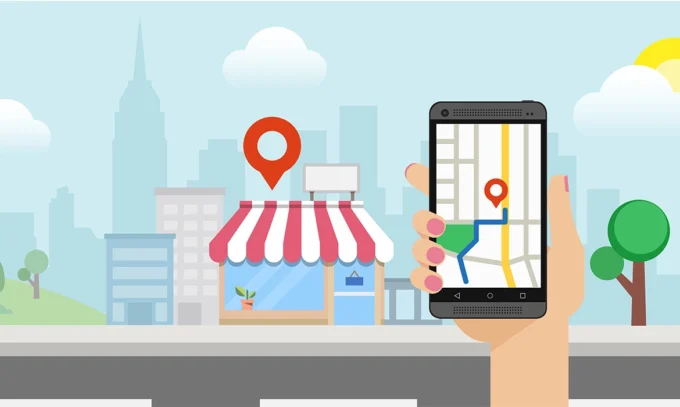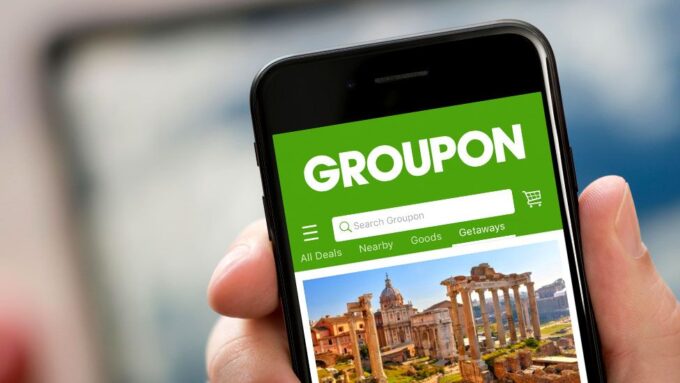If you’re looking for a way to grow your local business and increase profits, you need to get serious about local marketing. And in this guide, we’re going to give you several tactical ways to get started.
What Kind of Show Do You Want?
Let’s pretend for a few moments that you’re a tour manager for a middling band. The band is pretty good, but isn’t necessarily famous outside of a few circles. On a good night, they might attract 1,000 fans at a venue. On a bad night, they’re nothing more than background music at a sports bar.
If you’re the tour manager for this band and you’re presented with two options of where to perform on a Thursday night in July, which of the following are you choosing: A hip underground bar in the heart of New York City? Or a small concert venue in Cartersville, Georgia?
In this fictional example, most people say, “Well, the bar in New York City, of course! I don’t even know where Cartersville, Georgia is!” And if you were working with an extremely popular band, you’d be right. (In this case, a bigger market is a better market.) But remember who your band is. They’re a middling band that doesn’t necessarily command a ton of ticket sales based on their name alone.
In reality, choosing the small concert venue in Cartersville might actually be a wiser decision. How so? Because of the marketing potential. As the proverbial saying goes, you never want to be a small fish in a big pond (at least in a business context). It’s much better to be a big fish in a small pond.

On a Thursday night in July, a middle-of-the-road band will have trouble attracting a large audience in New York City, due to saturation in the marketplace. There will be dozens of other shows that night – including plenty of much more famous performers, artists, entertainers, comedians, professional sports teams, etc. In order to create exposure for the show, it’s going to require a ton of marketing and promotional effort. (Lots of time and money.)
But what do you think is happening in Cartersville, Georgia on that same Thursday night? Nothing against Cartersville (or feel free to insert any medium-sized town in an area near you), but there simply aren’t many other options on the event calendar.
Sure, the population might be smaller, but your band would likely be the only show in town. And as long as you know how to execute a strategic local marketing strategy, good things will happen for you.
If we can use another cliche: It’s better to have a large piece of a small pie than a tiny sliver of a larger pie. (And, interestingly enough, it costs a lot less to get that large piece than it does to buy the tiny sliver.)
This is the power of local marketing. Unless you’re a big brand with significant brand equity and a large, national consumer base, beginning with a local marketing strategy almost always makes sense. It allows you to cost-effectively target less saturated markets and make a name for yourself.
Then, once you establish a successful local brand, you can leverage that revenue and credibility to expand to broader markets with more customers.
Using a Local Marketing Strategy to Stand Out

Local marketing has the ability to open lots of doors for your brand. Let’s take a look at several tips and techniques you can use to help your brand stand out:
Put Your Stake in the Ground
It’s good to have a physical presence in a local market. Even if it’s a small store or office, having that physical footprint makes you seem even more credible and trustworthy. It also allows you to leverage print signage, which enhances brand recognition.
When it comes to signage, SignBliss.com encourages businesses to think about visibility and comprehension. Simple signs always work better than complex ones. Choose a singular message or call-to-action for each sign and stick with it. If you try to do too much, you’ll confuse and overwhelm people.
Leverage Partnerships
Partnerships are extremely powerful in business (and even more so when the partnership is between two local companies). A partnership essentially helps you latch on to the authority and credibility that another company has already established and siphon some of that off for your own brand.
The key to successful partnerships is to choose brands that have a large base of local customers who trust them. It should also be a company that aligns closely with your core values and beliefs. Consider launching joint venture projects with them and/or working out co-branding or sponsorship deals.
Use Event Marketing
Never underestimate the importance of getting out in the community and meeting people. There’s something about being able to look people in the eyes, shake hands, and have conversations that helps a brand succeed in a local market. Events provide a great platform for this.

With event marketing, you can get in front of a large number of people in a concentrated period of time and have them try, sample, or engage with your products. If you do your job well, you can create customers for life.
Be Proactive With Reviews
Think about the last time you searched for a business in your local market. What did you do? You probably ran a Google search for the company and read some of their reviews. (If nothing else, you checked the star rating to make sure it was decent.) This is how people search for local companies these days.
Don’t leave reviews to chance. If you want to ensure you have a positive search presence on Google (and Facebook, for that matter), proactively encourage your customers to leave reviews. While you can’t legally pay them for reviews, you can incentivize them with emails, product inserts, and even touchscreen tablets inside your store.
Try Groupon
Remember Groupon? Chances are, you’ve probably purchased something from this deal site at least once or twice. But have you ever considered using it as part of a local marketing strategy?

“Groupon is an amazing resource to help market your business locally,” entrepreneur Mike Podesto explains. “As soon as somebody logs on to Groupon, they will see a variety of different deals based on the distance from their current location. Groupon is a great, low-cost solution to get your name out there. Also, most of the fees are paid when the customer actually purchases the product or service that you are offering.”
One of the perks of Groupon is that you not only generate revenue in the form of sales, but you also get exposure. Even the people who don’t purchase the deal still see your logo and name on the Groupon site when running searches for local deals.
Adding it All Up
Is local marketing the only way to go? Certainly not. However, if you’re looking for a cost-effective way to build some momentum, garner attention, and create lots of proof and credibility, local marketing creates a much faster path than a shotgun approach where you target everyone at once.









